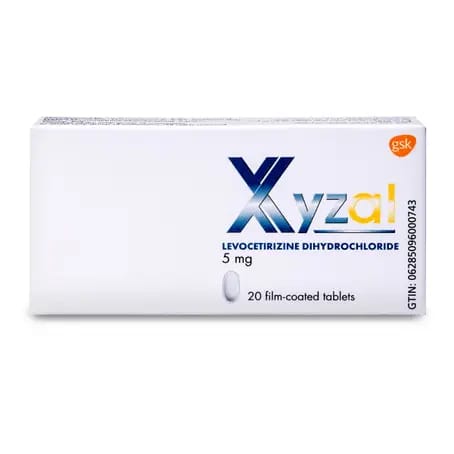What Ibuprofen is and what it is used for
Ibuprofen is used for the symptomatic treatment of mild to moderate pain (headache, toothache, muscle ache, backache, and menstrual cramps), fever, and pain and inflammation in arthritic diseases.
Do not take Ibuprofen
• If you’re allergic to Ibuprofen or any other component of this medicine.
• If you’ve had allergic reactions to Acetylsalicylic acid or other anti-inflammatory painkillers.
• If you previously suffered from gastrointestinal bleeding following the use of non-steroidal anti- inflammatory drugs.
• If you are suffering from an ulcer or bleeding in the stomach or small intestines or had at least two episodes in the past.
• If you suffer from severe liver, kidney or heart problems.
• If you are severely dehydrated.
• If you have any active bleeding.
• If you have conditions that increase the risk of bleeding.
• If you are in the last 3 months of pregnancy.
Warnings and precautions
Talk to your doctor about all your medical conditions before taking this medicine including:
• If you have chronic inflammatory gastrointestinal diseases such as ulcerative colitis, Cohn’s disease, or others.
• If you have systemic lupus erythematosus (SLE).
• If you have problems with your blood cells.
• If you have blood clotting problems.
• If you have a high blood pressure or heart problems.
• If you have liver or kidney problems.
• If you have asthma or other conditions where it is difficult to breathe.
Ibuprofen and other similar medicines may cause ulcers, perforation and bleeding in the stomach or intestines. These can be serious.
Ibuprofen and other similar medicines are associated with a small increased risk of heart attacks and stroke, particularly when used in high doses for a long period of time.
Possible side effects
Stop using this product and seek immediate medical help if you develop rash; hives; itching; red, swollen, blistered, or peeling skin; wheezing; tightness in the chest or throat; trouble breathing, swallowing, or talking; unusual hoarseness; or swelling of the mouth, face, lips, tongue, or throat.
Serious side effects
• Gastrointestinal bleeding and ulcers
• Kidney problems
• Severe skin reactions
Other medicines and Ibuprofen
Tell your doctor about all the medicines you are taking.
Ibuprofen interacts with a lot of medicines including:
• Other NSAIDs
• Anticoagulants and anti-platelets
• Diuretics
• Lithium
• Digoxin
• Steroids
• Methotrexate
• Immunosuppressant medications
• Some antibiotics
• Medicines used for depression
• Sulfonylureas
• Fluconazole and Voriconazole
• Some anti-viral medications
• Gingko biloba (herbal product).
4951What Ibuprofen is and what it is used for
Ibuprofen is used for the symptomatic treatment of mild to moderate pain (headache, toothache, muscle ache, backache, and menstrual cramps), fever, and pain and inflammation in arthritic diseases.
Do not take Ibuprofen
• If you’re allergic to Ibuprofen or any other component of this medicine.
• If you’ve had allergic reactions to Acetylsalicylic acid or other anti-inflammatory painkillers.
• If you previously suffered from gastrointestinal bleeding following the use of non-steroidal anti- inflammatory drugs.
• If you are suffering from an ulcer or bleeding in the stomach or small intestines or had at least two episodes in the past.
• If you suffer from severe liver, kidney or heart problems.
• If you are severely dehydrated.
• If you have any active bleeding.
• If you have conditions that increase the risk of bleeding.
• If you are in the last 3 months of pregnancy.
Warnings and precautions
Talk to your doctor about all your medical conditions before taking this medicine including:
• If you have chronic inflammatory gastrointestinal diseases such as ulcerative colitis, Cohn’s disease, or others.
• If you have systemic lupus erythematosus (SLE).
• If you have problems with your blood cells.
• If you have blood clotting problems.
• If you have a high blood pressure or heart problems.
• If you have liver or kidney problems.
• If you have asthma or other conditions where it is difficult to breathe.
Ibuprofen and other similar medicines may cause ulcers, perforation and bleeding in the stomach or intestines. These can be serious.
Ibuprofen and other similar medicines are associated with a small increased risk of heart attacks and stroke, particularly when used in high doses for a long period of time.
Possible side effects
Stop using this product and seek immediate medical help if you develop rash; hives; itching; red, swollen, blistered, or peeling skin; wheezing; tightness in the chest or throat; trouble breathing, swallowing, or talking; unusual hoarseness; or swelling of the mouth, face, lips, tongue, or throat.
Serious side effects
• Gastrointestinal bleeding and ulcers
• Kidney problems
• Severe skin reactions
Other medicines and Ibuprofen
Tell your doctor about all the medicines you are taking.
Ibuprofen interacts with a lot of medicines including:
• Other NSAIDs
• Anticoagulants and anti-platelets
• Diuretics
• Lithium
• Digoxin
• Steroids
• Methotrexate
• Immunosuppressant medications
• Some antibiotics
• Medicines used for depression
• Sulfonylureas
• Fluconazole and Voriconazole
• Some anti-viral medications
• Gingko biloba (herbal product).
How to take Ibuprofen
• Take as indicated by your doctor.
• The tablets are for adults and adolescent. Do not use in children younger than 6 years or weigh less than 20 kg.
• The oral suspension is for children starting 3 months of age who weigh more than 5 kg.
• Take with or right after a meal.
• Adults and adolescents: the usual daily dose is 1-2 tablets, 3-4 times per day (every 6 hours). Do not exceed 1200 mg/day with 200 mg tablets, and 2400 mg/day with 400 mg or 600 mg tablets.
• Children 6-12 years (> 20 kg): the usual dose is one 200 mg tablet 1-3 times per day. Do not exceed 3 tablets (600 mg) in one day.
• Dosing in children depends on the child’s weight. The range is 5-15 mL, 3 times a day.
Ibuprofen 100 mg/5mL
Ratings & Reviews
Related products
FLUTAB
FLUTAB Tablet 20 PcsPROCTO
PROCTO Glyvenol Cream 30GCLARA LORATADINE
CLARA 5 Mg/5Ml Syrup 100MlZERTAZINE
Zertazine 10 mg Tablet 20pcsXYZAL
Xyzal 5 mg Tablet 20pcsZERTAZINE
ZERTAZINE Zertazine 10 mg 10 TabOTRIVIN
OTRIVIN 0.1% Nasal drop 10MlZERTAZINE
Zertazine 5 mg/5ml Syrup 100 mlVIVO
Vivo Plus Nasal Spray - 20 MlURALYT
URALYT Uralyte-U GranulesTYLENOL
TYLENOL Tylenol 350mg SuppZYRTEC
Zyrtec 0.1% Syrup 75 mlWhenever you need help, just

Added to cart
Cart total
SAR 0










































